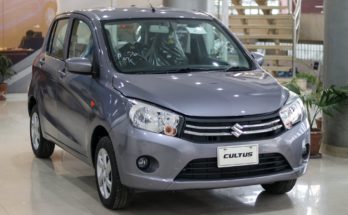Pakistan is at a crossroads in terms of the future trajectory of its domestic auto sector. The Pakistan Institute of Development Economics (PIDE) estimates that high import vehicle protection, which is currently over 45%, has shielded domestic automakers from overseas competitors for many years.
With little investment in new models or technology, the domestic industry is able to dominate market share owing to this protective environment. But this kind of protection from competition also destroys innovation. Pakistan’s automakers are used to concentrating on local sales rather than improving their products and capacities for exporting abroad.
Related: 90% of Cars in Pakistan are Sold at Premium/ Own/ On Money- Research
Given the current economic challenges, Pakistan prioritizes accelerating export growth. One bold idea being discussed is imposing a unique “super tax” on automaker earnings that is dependent on export results. Companies that sell mostly in the local market may be subject to a super tax of 60% on their profits. However, if 10% of production is exported, the rate would decrease to 15%, and if 40% or more is exported, it would completely disappear.
The argument put up by supporters of this super tax is that it would provide Pakistan’s car industry with significant incentives to improve its competitiveness, integrate into international supply networks, and increase its exports. This could assist in counterbalanceing the country’s persistently growing trade deficit. Pakistani automakers would have to raise their quality to meet international standards in order to sell abroad.
Related: Non-Production Days and Insufficient Localization
Critics counter that a sudden 60% tax increase may excessively burden domestic automakers already burdened by high costs and taxes. They underscore the argument that companies are unable to quickly shift a sizable amount of output toward export markets due to restricted manufacturing capacity.
However, the hefty amount charged domestically for quick delivery of new cars—known locally as “on money”—indicates unfulfilled local demand. Dealer-added on-money costs can increase the price of a car by more than 13%, and this trend is expected to continue. All things considered, the super tax idea has potential if executed appropriately. Companies can systematically invest in the production, marketing, and distribution networks that are necessary to export competitively over a period of three to five years.
Related: Can We Settle the Localization Debate With This?
The tax may be dependent on factors other than just export volume. It might also be a reflection of the technical content and product quality. This would encourage the export of more expensive cars with contemporary features as opposed to oversupplying markets with antiquated, low-tech models.
Undoubtedly, major reforms will be needed if Pakistan’s long-protected auto industry is to become export-oriented. The proposed super tax on automakers has the potential to drastically change Pakistan’s auto industry if it is implemented gradually. While the deep end of unfettered global competition is daunting, continuing the status quo of protectionism is unsustainable. With smart policies, Pakistan’s car companies can embark on a phased transition toward greater dynamism and success in world markets.
Related: How Can Car Sales Improve in Pakistan?
The discussion surrounding the super tax offers a unique chance to support this industry in reaching its full potential. Many of them would undoubtedly fail due to the unexpected tax increase. However, this reform can put Pakistan’s auto industry on the path to exporting higher-value cars and integrating into international supply chains if it is carefully designed and given reasonable expectations and timelines.
Pakistan would have to make difficult decisions in the upcoming years in order to revive its economy. While the auto sector super tax necessitates careful implementation, the end result would be worth the effort.
Originally published in Dawn, written by Dr Nadeem ul Haque (Vice-Chancellor), and Dr Muhammad Zeshan, a Research Fellow at PIDE

A computer animation professional with over 23 years of industry experience having served in leading organizations, TV channels & production facilities in Pakistan. An avid car enthusiast and petrolhead with an affection to deliver quality content to help shape opinions. Formerly written for PakWheels as well as major publications including Dawn. Founder of CarSpiritPK.com




